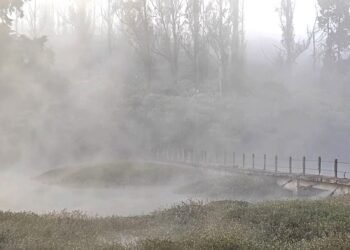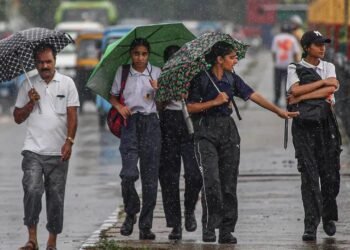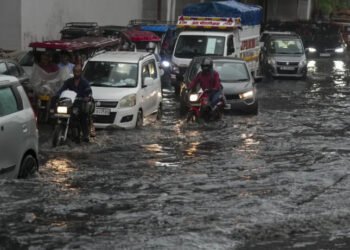In response to the region’s deteriorating air quality, the Center on Friday issued an order prohibiting non-essential construction work and the operation of four-wheelers powered by BS-III gasoline and BS-IV diesel.
A sudden spike in Delhi’s daily average air quality index (AQI) can be attributed to unfavorable meteorological conditions such as fog and haze combined with low wind speeds, according to an order issued by the Commission for Air Quality Management (CAQM), a statutory body tasked with developing strategies to combat pollution in the area.
Delhi’s overall AQI is steadily rising since this morning. It stood at 397 at 10 a.m. and 409 at 4 p.m.
Re-invoking curbs under Stage-III of the Graded Response Action Plan (GRAP), the CAQM ordered a ban on non-essential construction work, stone crushing, and mining in Delhi-NCR.
Construction work related to national security or defense, projects of national importance, healthcare, railways, metro rail, airports, interstate bus terminals, highways, roads, flyovers, overbridges, power transmission, pipelines, sanitation, and water supply are exempted from the ban.
Under Stage-III, restrictions are also imposed on the operation of BS-III petrol and BS-IV diesel four-wheelers in Delhi, Gurugram, Faridabad, Ghaziabad, and Gautam Budh Nagar.
The Center’s wintertime air pollution reduction plan, known as GRAP, is put into practice across the area.
GRAP divides acts into four stages: ‘Very Poor’ (AQI 301-400), ‘Poor’ (AQI 201-300), ‘Severe’ (AQI 401-450), and ‘Severe Plus’ (AQI>450) for Stage III.














